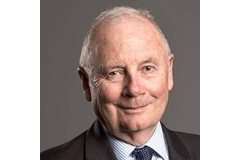Webinar: Invisible ties - Unravelling the link between mental health and CVD
Cardiovascular disease (CVD) is the leading cause of death worldwide.1
With advancements in medical and surgical interventions, people are surviving longer following cardiac events and stroke. However, many survivors of CVD events live with significant co-morbidities, including mental health disorders such as depression and anxiety.1
Mental illness is increasingly recognised as a risk factor for CVD, with severe mental illness associated with a 37% increase in the risk of cardiovascular events.2 Average prevalence rates for post-cardiac event depression and anxiety are approximately 23% and 29% respectively.3 Both anxiety and depression have a negative impact on outcomes for cardiac patients, including premature mortality, recurrent events and re-hospitalisations, higher healthcare use, reduced quality of life and poorer adherence to health-enhancing behaviours.3
Australian clinical practice guidelines for mood disorders and anxiety recommend evidence-based lifestyle interventions prior to, or alongside, the prescription of psychological therapy or medication.4,5 The implementation of strategies to manage stress, sleep, social isolation, and loneliness can promote the uptake of positive behaviour modifications.
Chaired by Professor Garry Jennings and joined by an expert multi-disciplinary panel, this webinar will explore the latest evidence and innovative approaches to delivering mental health support in primary care, including blended care and the evidence base for digital/e-supports.
Duration: 1 hour
Date recorded: 28 September 2023
Topics covered
- The relationship between mental illness and risk for cardiovascular disease events and recurrence.
- Caring for individuals with mental illness in stroke and cardiac settings, notably treatment and prevention of psychological distress in stroke rehabilitation.
- Importance of sleep quality and stress management, and the impact on lifestyle factors and behaviour modification in relation to mental illness and CVD risk.
- Innovative approaches to deliver collaborative care and MH supports, including blended care and digital/ e-supports.
Expert panelists
Professor Garry Jennings, Chair
Chief Medical Advisor at the Heart Foundation
Professor Garry Jennings is Chief Medical Advisor of the Heart Foundation as well as cardiologist at the Baker Heart and Diabetes Research Institute where he was Director and CEO from 2001–15 and the Alfred Hospital where he was one time Director of Cardiology. He was Executive Director of Sydney Health Partners 2017-2020. Over 700 of his publications have been cited more than 40,000 times on subjects ranging from prevention, pathophysiology, and treatment of cardiovascular disease to First Nations health and health policy. He Co-Chaired the guideline Expert Advisory Committee along with Professor Mark Nelson.

Professor David L Hare
Professorial Fellow, University of Melbourne and Senior Cardiologist, Austin Health, Australia
Professor David Hare studied at the University of Melbourne and Guy’s Hospital, London, before returning to the University of Melbourne and the Austin Hospital. During his physician training, he also trained in Psychiatry, at present being the only cardiologist in the world to have fully trained in psychiatry. He is a Professorial Fellow at the University of Melbourne and has supervised more than 80 research students over the years, with >1,000 citations to his own papers each year. His areas of research have included a basic vascular laboratory, whole exome sequencing, heart failure, cardiac surgery, exercise, metabolic interactions with heart disease, and lipidology, as well as research into psychosocial aspects of heart disease.

Professor Maree Hackett
Program Head at The George Institute for Global Health, UNSW, & Prof. of Epidemiology at University of Central Lancashire, UK
Professor Hackett is Program Head, Mental Health at The George Institute for Global Health, UNSW & Professor of Epidemiology at the University of Central Lancashire, Preston, UK. Prof Hackett is a public health researcher with expertise in large scale multi-centre international stroke clinical trials, epidemiology, cohort studies and systematic reviews. Recently Maree was co-lead on the NHMRC-funded AFFINITY trial of fluoxetine after stroke (Australia, New Zealand & Vietnam, published Lancet Neurology 2020) and CI on its two sister trials FOCUS (UK, Lancet 2019) & EFFECTS (Sweden, Lancet Neurology 2020) which collectively recruited 5907 people at 181 hospitals in 6 countries. Maree’s work interests are broad having completed research on stroke, depression, emotionalism, treatment resistant depression, epilepsy, cataract surgery, cardiovascular diseases to name a few. In the cardiovascular space she is best known for her work on depression after stroke. Outside of work Maree is an occasional artist, plays classical guitar, tennis and is owned by a red cattle dog called Diesel.

Carlye Weiner
Clinical psychologist
Carlye Weiner is a clinical psychologist and long-time collaborator with the Heart Foundation. She has a special interest in the intersect between physical and mental health, and currently works in mental health leadership at Australian Unity and has a consulting business and private practice in Melbourne. She is an advocate for promoting awareness of mental health issues in people with a heart condition, and in 2021 co-developed the Supporting Young Hearts podcast, a lived experience-driven and psycho-educational series for patients, carers and health professionals.

Associate Professor Grant Blashki
Lead Clinical Advisor for Beyond Blue
Assoc Prof Grant Blashki is the Lead Clinical Advisor for Beyond Blue, Associate Professor at the Nossal Institute for Global Health, Adjunct A/Professor at Monash Sustainable Development Institute, Writer in Residence at Future Leaders books, Honorary Professor at Shenzhen Luohu Hospital Group in China and a practising general practitioner. His three themes of research are 1) Primary Mental Health Care 2) Climate Change and Health and 3) Public Health Communication. He has co-edited nine books, co-authored 140 peer reviewed papers, and has engaged with media on public health on over 500 occasions over the last five years.

Last updated21 February 2024